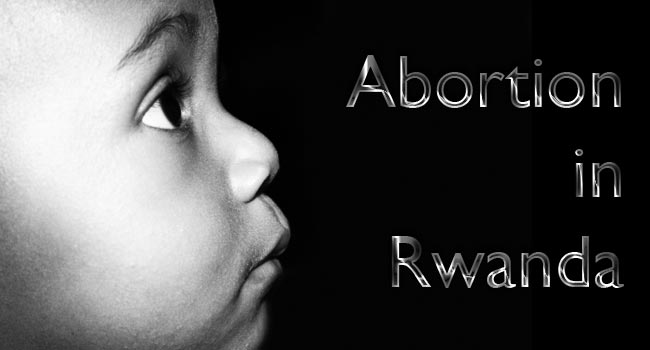Abortion In Rwanda

Rwanda: Conditioned Legalization of Abortion Divides Society
Until 1977, abortion was generally illegal in Rwanda. The Criminal Code (Ordinance 43/Just.of 18 May 1970), which was based on the 1940 Penal Code of the Belgian Congo, contained no stated exceptions to the prohibition on the performance of abortions, and an abortion could be carried out only under general criminal law principles of necessity to save the life of the pregnant woman.
In 1977, Rwanda enacted a new Penal Code (Law 21-77 of 18 August 1977) that liberalized to some degree the performance of abortions. The law prohibits abortion except when the continuance of the pregnancy seriously endangers the health of the pregnant woman. In such cases, a second medical opinion is required, and the intervention must be performed by a State physician or physician approved by the State in a public hospital or a private hospital approved by the State.
Rwandan legislature recently (2012) approved a bill legalizing abortion in cases of rape, forced marriage or incest. According to the draft penal code, article 165 stipulates that there is no criminal liability for a woman who causes her own abortion and a medical doctor who helps a woman to abort provided that the four conditions are met.
The conditions include; when a woman is pregnant as a result of rape, forced marriage, incest in the second degree and when continuation of pregnancy jeopardizes the health of the unborn baby or that of the pregnant woman.
The penalty for abortion without being under the above exceptions is imprisonment and paying fines. The years of imprisonment however vary depending on a number of circumstances.
The government hails the move as the promotion of women's rights. Churches see it as a violation of the fundamental right to life. Abortion remains a sensitive issue in a country still recovering from the 1994 genocide. Rwandan religious authorities also oppose the partial legalization of abortion.
On 19 April 2012, President Paul Kagame received a delegation of Christian church representatives. "Serious and profound discussions" took place, according to a press release by the Rwandan bishops group Conférence Episcopale du Rwanda (CEPR). "We choose the child's life and, understanding the pain of the mother whose dignity was damaged, we are committed to supporting and helping her keep the child," said CEPR president Smaragde Mbonyintege.
Parliament spokesperson Augustin Habimana, on the other hand invited the churches to be more realistic. He urged them to have the courage to see both sides of the coin. "Let us consider a woman who is forced to have a child that she might not love. Also imagine the disgrace of a child learning it was born from rape or incest. Women should at least have the right to choose whether or not to end such pregnancies." He said.
Members of the Chamber of Deputies passed the draft Penal Code, with the majority voting in favor of an article that permits abortion under special circumstances. The abortion law reform continues to stir up a heated debate among the public and different organizations.


